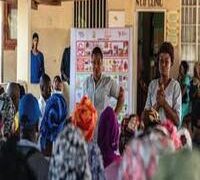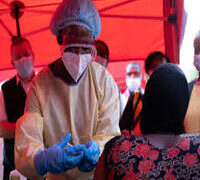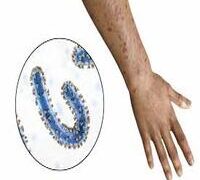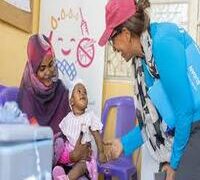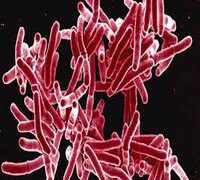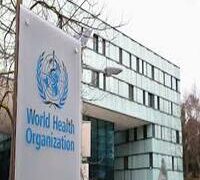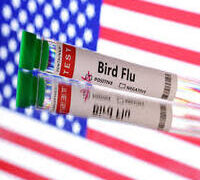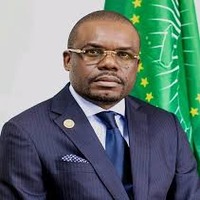The Director General of the Africa Centres for Disease Control and Prevention, Dr Jean Kaseya, on Thursday, lauded Nigeria’s progress in health financing and system reforms.
Speaking during the second day of the 2025 Joint Annual Review of the Health Sector, themed “All hands, one mission: Bringing Nigeria’s health sector to light,” in Abuja, Kaseya described Nigeria as a model for the continent in tackling inefficiencies, promoting domestic resource mobilisation, and driving digital transformation in the health sector.
The Africa CDC chief commended Nigeria’s approach to health sector planning and financing, emphasising that its progress offers valuable lessons for other African nations.
The Joint Annual Health Sector-Wide Review provides a platform to reflect on progress, identify gaps, learn from experience, and enhance collective accountability for results in the health sector.
Nigeria’s health sector reforms, including digital payroll systems, the Sector-Wide Approach (SWAp), and expanded private sector involvement, demonstrate the country’s capacity to reduce inefficiencies, improve domestic resource mobilisation, and provide better health coverage for its citizens.
Africa CDC’s recognition underscores Nigeria’s growing role as a continental leader, showing how evidence-based reforms, strong political will, and strategic partnerships can strengthen health systems across Africa and reduce dependency on foreign aid.
Kaseya said, “This joint annual meeting is critical, not only for Nigeria, but for the continent.
For the next review, I will request the permission of the Minister and the Nigerian people to invite some of your brothers and sisters from Africa to come, sit with you, and learn from you.
“We come here to tell you, you are on the right track, and we support your approach.”
Presenting an evidence-based overview of Africa’s health financing challenges, he noted that out-of-pocket expenditure remains the largest source of health financing across the continent, averaging 40 per cent and reaching as high as 75 per cent in some countries.
Kesaye also said over 20 African nations depend on Official Development Assistance for more than 30 per cent of their healthcare spending.
“It means poor people are paying. In some fragile states, more than 60 per cent of health funding depends on ODA. This must change,” he stated.
Recalling the Abuja Declaration target of allocating 15 per cent of national budgets to health, Dr Kaseya observed that the average across Africa remains just 7.4 per cent.
According to him, reducing out-of-pocket health spending requires universal health coverage through national insurance systems, not reliance on donor aid.
You cannot deal with out-of-pocket payments through ODA. You deal with it by putting in place a national health insurance scheme.
“If Nigeria can cut out-of-pocket expenditure by 88 per cent, the world will be glad. It will become another paradise,” he noted.
He, however, commended Nigeria for its recent progress, emphasising that the country is steadily advancing toward its health financing goals.
He also commended Nigeria’s partnership with the private sector, highlighting efforts by Aliko Dangote to strengthen local manufacturing of essential commodities.
Citing detailed evidence from across Africa, Dr Kaseya said countries could save between 20 and 40 per cent of their budgets simply by improving planning and coordination.
“In Mozambique, we are saving 38 per cent just by having one plan.
“Nigeria’s Sector-Wide Approach is evidence-based. It is cutting inefficiencies, fragmentation, and weak governance.
I was impressed to hear what Dangote is doing for local production. We need more of Africa’s private sector investing in Africa, before calling others to come,” he said.
He further highlighted that the Africa CDC and donor nations are working on a new framework called the ‘Lusaka Agenda’, which ensures that global health initiatives align with national priorities, rather than operating independently.
“We are convincing donor countries to make their support Lusaka-compliant.
“When the Global Fund or Gavi provide funding, they must support national plans,” he noted.
He announced that Nigeria would serve as one of a few pilot countries for integrated health financing under the G20 partnership.
“We are so proud of Nigeria. By next year, we will take Nigeria as one of the countries where we will integrate everything and measure the success we are making.
“If Professor Pate talks about Nigeria, people will say he is the Minister. But when I, as a neutral person, speak, I want the world to know that Nigeria is making real progress,” he added.
PUNCH NEWS.







